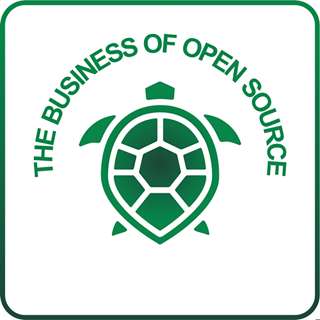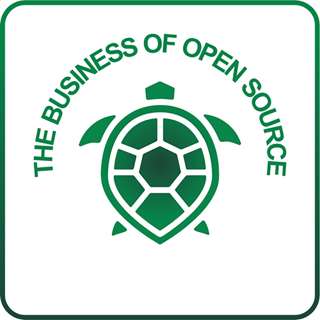
Lessons from Sandeep Lahane
In this short summation episode, I talked a little more about why I think Deepfence's open source strategy is so genius.
13 Maj 20226min

Threat Mapping and Striking with Sandeep Lahane
Today I sat down with Sandeep Lahane, founder and CEO of Deepfence, a security preventive and detective solution for cloud and container native environments. Sandeep began by explaining both the open source and enterprise components of Deepfence. Threatmapper is a multi-cloud platform for scanning, mapping, and ranking vulnerabilities in running containers, images, hosts, and repositories, and Threatstryker is a commercial product that offers runtime attack analysis, threat assessment, and targeted protection for infrastructures and applications. We then talk about the inexhaustibility and the ever-changing landscape of cybersecurity. Sandeep explains the impetus for launching Deepfence and the process of getting to Threatmapper and Threatstryker, and then talks about his journey from working as a systems programmer to launching a tech startup. We discuss the tense relationship between security and development in the industry, and end the conversation with some words of advice for engineers considering the entrepreneurial plunge.Highlights:What is the difference between Threatmapper and Threatstryker at Deepfence? (00:55)Sandeep explains how the Deepfence commission product builds upon the open source one (2:14)Discussing the inexhaustibility of the cybersecurity landscape (11:40)The genesis of Deepfence (13:58)Sandeep discusses the business benefits of having an open source project (14:57)Sandeep talks about his journey from systems programmer to tech startup (17:20)Emily and Sandeep discuss the tense relationship between security and development (21:19)Sandeep gives advice to engineers considering entrepreneurship (33:57)Links:Sandeephttps://deepfence.io
11 Maj 202236min

Lessons from Eric "The IT Guy" Hendricks
Some short thoughts on marketing in the open source ecosystem, drawn from my conversation with Eric on Wednesday.
6 Maj 20226min

Technical Marketing and Open Source with Eric Hendricks
Today I sit down with Eric Hendricks, the technical marketing director at Red Hat. Red Hat delivers open source solutions that make it easier for enterprises to work across platforms and environments. Eric begins the conversation by discussing his start as a technologist and how he decided to make the move to marketing. Eric then discusses the challenges of bringing marketing savvy into the devops space, including the unintended consequences of marketing buzzwords. I ask Eric about the relationship between marketing and open source, and Eric talks about how many of Red Hat’s community marketing efforts are driven through upstream communities. We then discuss the concept of the buyer in open source versus start ups, and how the difference is that the “big ask” in open source projects is emotional investment. Eric concludes the conversation by talking about the impact of his current role as a technical marketer as compared to the impact of a founder or IC. Highlights:Eric answers the question “At what point did you start to see yourself and did other people see you as a marketer?” (5:53)The stigma around marketing and the problem with marketing buzzwords in devops (10:22)Emily and Eric discuss the shared vocabulary problem that can arise with newer concepts in tech (14:35)Eric talks about equipping his product’s “champions” with all the resources they need to communicate need and efficacy to potential buyers (15:39)Emily asks Eric about the relationship between marketing and open source (19:50)Emily and Eric discuss the concept of “the buyer” with open source (25:14)Eric answers the question: “how are you able to have more of an impact in your current role than you would as an IC?” (29:30)Links:Personal website: www.itguyeric.comCompany website: www.redhat.comTwitter: @itguyericCompany: @rhelPodcasts: RHEL Presents, Into the Terminal
4 Maj 202235min

Lessons from Omri Gazitt
I'm trying something new this week — adding an extra episode with some key takeaways from the interview earlier in the week. In this one, I talked about the education battle many cloud native companies face, the problem of open source projects that are too good and understanding pain points for different personas.
29 Apr 20225min

Cloud Native Authorization with Omri Gazitt
Today I’m joined by Omri Gazitt, founder of Aserto, an authorization company that offers cloud native authorization as a service. We discuss the differences between ID authorization and authentication and the problems associated with educating developers on the distinctions. Omri also talks about the evolution of authorization from server software all the way to cloud native authorization. He then expounds on the strategic nature of the decision to open source or not, and offers advice to developers based on his experience as both an engineer and an executive. Highlights:The beginnings of Aserto (7:50)Omri talks about what it was like to be part of a startup, Neon, in the 90s (10:49)Emily and Omri discuss what authorization was like pre-cloud native (13:32)How integration became the strategy used by Aserto to begin to solve authorization problems (17:10)The decision to open source and how organizations should be strategic when considering open source (18:55)Omri discusses his unique perspective as both a former tech engineer and executive in forming his start-up (25:08)Omri talks about a missed opportunity in the early stages of Aserto (28:56)Links:OmriLinkedIn:TwitterCompany
27 Apr 202232min

The Google Search for Data with Mark Grover
I’m joined by Mark Grover, one of the founders of Stemma, a data catalogue for building decentralized data informed cultures. In essence it is a “Google Search” built for data scientists, data analyst, business leaders, and more. Stemma is striving to solve data documentation and relevance issues by keeping data cataloguing up to date and current.In this episode Mark covers his transition from the data team at Lyft to establishing Stemma. He discusses how he identified the need for a source of truth for ETA data, and how the data scientist in these teams should be the end all for this knowledge. Starting with building Amundsen, Stemma expands on the groundwork laid there to bring data to the user and open-source community’s needs.Highlights:An introduction to Mark and Stemma (00:00)The history of Stemma (00:45)How open source helped solved data cataloguing problems (4:40)The decision to found Stemma (07:40)How Stemma’s relationship with Amundsen has evolved (13:20)The unexpected challenges and unexpected eases (18:35)Navigating the co-founding experience (23:35)Mark’s vision for Stemma’s future (28:54)Mark’s tips for aspiring founders (32:54)Links:MarkLinkedInTwitterCompany
20 Apr 202234min

A How To Guide for Startups with Matt Leray
I’m joined by Matt Leray, co-founder and CTO Speedscale, an API testing product that applies “real world” stresses to “collect and replay traffic without scripting, simulate load and chaos, and measure performance.” With a history steeped in various aspects of tech, and with time spent in the startup space and cloud native space, Matt brings to the table some encompassing perspectives.Matt’s career has carried him from monitoring satallite earth stations, to fiber optics, and more recently into cloud native. Matt began in startups, then went to larger companies, then back to startups, which he offers some insight on. Matt has a lot of wisdom to share on entrepreneurship, how the startup space has changed, and how to best navigate that. Matt discusses how Speedscale works as an “traffic replay” platform for APIs and his role there both technically and as a co-founder. Check out the conversation for a list of startup how-tos!Highlights:Introduction to Matt and Speedscale (00:00)When Matt decided to become an entrepreneur (02:10)Deciding to jump into startups (06:00)What has stayed the same, and what has changed for Matt’s entrepreneurship (10:00)Being selective (14:00)Nailing down the timing and finding the right moment for Speedscale (20:26)Matt’s most controversial view about the cloud native startup space (26:25)Matt’s final thoughts (30:18)Links:MattLinkedInTwitterCompany
13 Apr 202231min






















